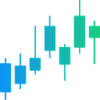Edit Your Comment
Over trading is a bad habit
Jan 03, 2021 at 07:19
Miembro desde Jul 19, 2020
posts 749
Over trading is one of the reasons why people make their account zero. If any trade goes against they open new trade thinking that it will help then to recover the loss quickly. By these way they do over trading. It is a really bad practice.
Miembro desde Feb 11, 2019
posts 2
forex_trader_2058895
Miembro desde Jan 01, 2021
posts 11
Miembro desde Sep 12, 2017
posts 232
Miembro desde Jul 20, 2020
posts 286
Miembro desde Nov 12, 2020
posts 19
Miembro desde Dec 05, 2020
posts 76
Jan 11, 2021 at 07:40
Miembro desde Dec 05, 2020
posts 76
debragonzalez posted:
If you can’t control your emotions, you will end up overtrading. So, it is always advised not to let your emotions control your trades.
Well said! I think the best way put to avoid over trading, is to use a trading plan. That will surely be of some help.
Miembro desde Jun 22, 2020
posts 69
Miembro desde Jan 11, 2019
posts 140
Miembro desde Jul 23, 2020
posts 816
Miembro desde Jan 13, 2021
posts 25
Feb 02, 2021 at 17:44
Miembro desde Apr 25, 2020
posts 5
I think it may be a good idea to define what "overtrading" actually is.
Investopedia has a general definition of overtrading which says: 'An individual trader...will have rules about how much risk they can take, including how many trades are appropriate for them to make.Once they have reached this limit, to continue trading is to do so unsoundly. While such behaviour may be bad for the trader...it is not regulated in any way by outside entities.'
The problem is that 'overtrading' means different things to different people and defining it starts with knowing yourself and deciding what your 'level of pain' is for each trade and for your account drawdown. Once you establish that, you must always stick to those limits in your trading, or else you will be 'overtrading'.
Myfxbook has helpful tools like the 'Risk of Ruin' graphic for your account that can assist you to choose those levels.
Your MT4 terminal also has a tab called "Exposure" which shows you your account's exposure to each currency from the aggregate of all your open trades.
It seems like many of the posters on this thread are talking more about initiating trades due to emotional impulses - so called 'revenge-trading' (where one loses a trade and then tries to 'get revenge' on the market by initiating more trades) and the like.
The disciplined trader, like in the Investopedia definition above, may also unintentionally overtrade his (or her) account by not paying proper attention to the available margin on the account as he trades.
Not only should one define how much risk one is willing to take on each trade by using a hard stop loss (can be placed either in the market or on your trade plan, but MUST be triggered if the market gets to it) every time, but be careful that one does not start trading on the accumulated equity of trades that are in positive territory but not yet closed out. I have seen trades that were up by a wide margin come back and stop me out, and if I had been trading with that equity as if it were actual 'money in the bank' it would possibly have triggered a margin call cascade and a large loss.
My point is the 'available margin' number on the account may lull the trader into a false sense of security and cause overtrading of the account even when trades are going the right way.
EQUITY MANAGEMENT is the antidote to overtrading as well as the key to long-term success.
Happy trading!
Investopedia has a general definition of overtrading which says: 'An individual trader...will have rules about how much risk they can take, including how many trades are appropriate for them to make.Once they have reached this limit, to continue trading is to do so unsoundly. While such behaviour may be bad for the trader...it is not regulated in any way by outside entities.'
The problem is that 'overtrading' means different things to different people and defining it starts with knowing yourself and deciding what your 'level of pain' is for each trade and for your account drawdown. Once you establish that, you must always stick to those limits in your trading, or else you will be 'overtrading'.
Myfxbook has helpful tools like the 'Risk of Ruin' graphic for your account that can assist you to choose those levels.
Your MT4 terminal also has a tab called "Exposure" which shows you your account's exposure to each currency from the aggregate of all your open trades.
It seems like many of the posters on this thread are talking more about initiating trades due to emotional impulses - so called 'revenge-trading' (where one loses a trade and then tries to 'get revenge' on the market by initiating more trades) and the like.
The disciplined trader, like in the Investopedia definition above, may also unintentionally overtrade his (or her) account by not paying proper attention to the available margin on the account as he trades.
Not only should one define how much risk one is willing to take on each trade by using a hard stop loss (can be placed either in the market or on your trade plan, but MUST be triggered if the market gets to it) every time, but be careful that one does not start trading on the accumulated equity of trades that are in positive territory but not yet closed out. I have seen trades that were up by a wide margin come back and stop me out, and if I had been trading with that equity as if it were actual 'money in the bank' it would possibly have triggered a margin call cascade and a large loss.
My point is the 'available margin' number on the account may lull the trader into a false sense of security and cause overtrading of the account even when trades are going the right way.
EQUITY MANAGEMENT is the antidote to overtrading as well as the key to long-term success.
Happy trading!
Start with EQUITY MANAGEMENT

*El uso comercial y el spam no serán tolerados y pueden resultar en el cierre de la cuenta.
Consejo: Al publicar una imagen o una URL de YouTube, ésta se integrará automáticamente en su mensaje!
Consejo: Escriba el signo @ para completar automáticamente un nombre de usuario que participa en esta discusión.
















